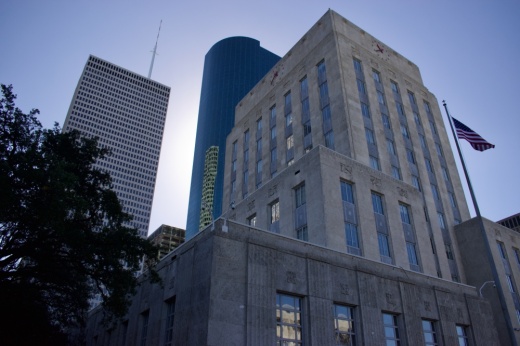At-large Council Member Michael Kubosh tagged the agenda item, preventing a vote and tabling it for next week's meeting April 5.
The amendment was modified to open the dialogue for six neighborhoods—Independence Heights, Freedmen's Town, Pleasantville, Piney Point, Magnolia Park/Manchester and Acres Homes—to begin the process of becoming conservation districts. Mayor Sylvester Turner called the neighborhoods six “pilots,” indicating they will be the first of other potential conservation districts if the item passes.
Kubosh, after tagging the item, questioned why those six neighborhoods were included in the language of the ordinance amendment and what data existed to constitute the need in those neighborhoods.
Council Members Abbie Kamin, Karla Cisneros, Tarsha Jackson, Tiffany Thomas and Robert Gallegos—who represent the parts of the city where the six neighborhoods are located—each spoke in favor of the ordinance.
“You ask for data. The data that I can give you is that I was born and raised in Magnolia Park,” Gallegos said. “My parents moved there back in the 1920s when they came from Mexico. This is an historic neighborhood that was founded back into the 1900s.”
Gallegos and the other council members representing the neighborhoods said the residents living there have asked for protection. Cisneros said Independence Heights residents have expressed interest in conservation districts and the protections they offer, dating back to 2012.
Kamin said without the proposed ordinance, the onus falls on residents to maintain the integrity of their neighborhoods.
“They're the ones that are having to react, plot by plot, to these issues, and you can't keep up with it, and things are falling through,” Kamin said.
City Attorney Arturo Michel also noted that National Historic Register designations—like those of Independence Heights and Freedmen's Town—do not protect these neighborhoods on a local level from instances such as the demolition of historic structures. This ordinance intends to fill those gaps, he said.
Thomas, who teaches a course on planning and development and cultural heritage preservation—spoke from an academic perspective on the issue.
“There's a theory on asset-based community development,” Thomas said. “There [are] nine principles. One of those principles is citizen led; another one is listen; another one is to ask. So ask the people to allow people to drive their priorities, and this is what we see.”
At-large Council Member Mike Knox said having the pilot program is akin to “the camel's nose under the tent.”
Knox also said the ordinance would enable neighborhoods to add to existing deed restrictions and expressed concerns that the requirement for 51% of property owners to sign on to being in a district would be ”pitting neighbor against neighbor.“
However, Gallegos said the ordinance does not allow for deed restrictions to be overridden.
Council Member Abbie Kamin released the following March 29 statement to Community Impact:
The conservation district ordinance will return to Houston City Hall for discussion April 5."I'm eager to vote next week. We are seeing precious and nationally significant history erased before our eyes. The burden continues to unfairly fall on residents as they try to react, lot by lot, rather than being able to proactively have a say in what they want for their neighborhoods. This vote will allow the process to begin to create a new tool residents in these six historically significant neighborhoods can utilize.





